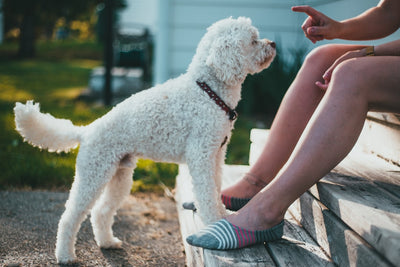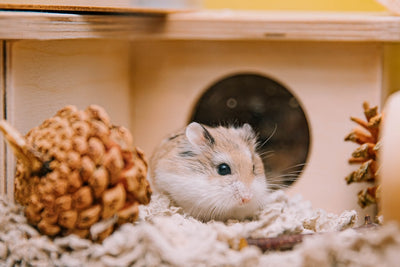Keeping Your Pup's Plush Toys Fresh and Safe
Welcome to your essential guide on keeping your pup's favorite plush dog toys clean and safe for endless play sessions. As pet parents who understand the joy these toys bring, we'll show you simple maintenance techniques to extend their life. Whether your furry friend has a collection of the best plush dog toys or just a few beloved companions, proper cleaning and care ensure these treasured items remain hygienic and durable through countless fetch games and cuddle sessions.
Safe Cleaning Methods for Plush Dog Toys
Every dog owner knows the sight: that once-pristine plush toy now covered in slobber, dirt, and who-knows-what from the backyard. Regular cleaning not only keeps your home fresher but also protects your pet from harmful bacteria that can accumulate on their favorite toys.
Machine Washing vs. Hand Cleaning Techniques
Machine Washing Method: The washing machine offers convenience for busy pet parents. For machine-washable plush dog toys, follow these steps:
Check the toy for any tears or loose parts that might come off during washing
Place toys in a pillowcase or laundry bag to provide extra protection
Use pet-safe, fragrance-free detergent (regular detergents may irritate your dog's sensitive nose)
Select a gentle cycle with cold water to preserve toy integrity
Air dry completely before returning to your pup (dryers can damage squeakers and stuffing)
Remember that not all plush toys are machine-washable. Always check manufacturer instructions first, especially for toys with electronic components or special materials.
Hand Washing Method: For delicate plush toys or those with built-in squeakers that might not survive machine washing, hand cleaning is your best option:
Fill a basin with warm water and mild pet-safe soap
Gently scrub the toy's surface with a soft brush or cloth
Pay special attention to heavily soiled areas
Rinse thoroughly until water runs clear (soap residue can upset your dog's stomach)
Press excess water out without wringing (which can damage the toy's structure)
Air dry completely, preferably in sunlight which provides natural disinfection
For toys like the whimsical dragon plush toys with multiple features such as crinkle materials and squeakers, hand washing typically preserves these interactive elements better than machine washing.
Extending the Lifespan of Your Dog's Plush Toys
The best plush dog toys aren't just playthings; they're comfort objects and companions. With proper care, you can significantly extend their useful life, saving money while keeping your pup happy.
Regular Maintenance Routines for Different Fabric Types
For Standard Plush Materials: • Weekly inspection for tears, loose threads, or damaged seams • Trim loose threads carefully (never pull them) • Spot clean dirty areas immediately before stains set • Rotate toys regularly to prevent excessive wear on favorites
For Specialized Fabrics: • Reinforced canvas or denim plush toys: Brush off dirt regularly and wash less frequently • Fleece or soft plush: Check for pilling and gently remove loose fibers • Rope-plush hybrids: Pay special attention to fraying areas which can become choking hazards
Preventative Care Tips: • Store plush toys in a clean, dry container when not in use • Consider having a "wet day" toy rotation for rainy days to keep indoor toys cleaner • Teach your dog appropriate play behaviors to reduce destructive chewing
Many pet owners find that implementing a toy rotation system not only keeps toys cleaner but also maintains their dog's interest. By putting away certain toys for weeks at a time, they seem "new" again when reintroduced.
When to Replace Plush Toys and Warning Signs
Even with excellent care, all dog toys eventually reach the end of their lifespan. Knowing when to retire a beloved plush toy is crucial for your pet's safety.
Safety Considerations for Worn Plush Toys
Signs It's Time for Replacement:
Exposed stuffing or filling: Once your dog has access to the stuffing, it becomes a potential choking or intestinal blockage hazard
Detached or damaged squeakers: These small plastic pieces can be swallowed
Torn seams that cannot be repaired: These will quickly worsen with continued play
Mold or mildew smell that persists after washing: This indicates bacterial growth inside the toy
Faded or discolored fabric that doesn't improve with cleaning: This may indicate material breakdown
While it can be tempting to keep repairing a dog's favorite toy, safety should always come first. Many manufacturers of the best plush dog toys now create "replacement" versions of popular designs specifically because they understand the attachment dogs form with their toys.
Monitoring Toy Condition: • After each cleaning session, perform a quick safety check • Watch for changes in your dog's interest in the toy, which might indicate deterioration • Be especially vigilant with senior dogs or aggressive chewers who may damage toys more quickly
If your dog seems unusually possessive or protective of damaged toys, introduce replacements gradually while the old toy is still present, then remove the damaged item once they've bonded with the new version.
Specialized Cleaning for Interactive Plush Toys
Today's best plush dog toys often include interactive elements like crinkle materials, multiple squeakers, or even treat-dispensing features. These require special cleaning considerations.
For toys with electronic components: • Remove batteries before cleaning • Use surface cleaning only with a damp cloth and pet-safe disinfectant • Allow to dry completely before replacing batteries
For toys with treat compartments: • Clean more frequently to prevent food residue buildup • Use a small brush (like a clean toothbrush) to reach inside pockets and crevices • Ensure complete drying before refilling with treats
Remember that toys combining fabric with rubber or plastic components may require different cleaning approaches for each material. When in doubt, spot cleaning is always safer than full immersion for complex toys.
Creating a Cleaning Schedule That Works
Consistency is key to maintaining your dog's plush toy collection. Consider this practical cleaning schedule:
• Daily: Quick visual inspection and spot cleaning as needed • Weekly: Surface cleaning of heavily used toys • Monthly: Deep cleaning of all plush toys in rotation • Seasonally: Full inventory check, repairs, and replacements
Many pet owners find success by coordinating their dog toy cleaning with other regular household tasks. For example, designating one plush toy for thorough cleaning each laundry day ensures the entire collection gets refreshed without creating an overwhelming chore.
Final Thoughts: Happy Dogs, Clean Toys
Regular cleaning of plush dog toys helps protect your pet from harmful bacteria while extending toy longevity. By implementing these simple maintenance routines, you ensure your furry friend always has safe, clean toys for healthy play. The best plush dog toys deserve proper care, just like any other investment in your pet's happiness.
Remember that even the best plush dog toys need replacement eventually—prioritize your pet's safety and enjoyment above all. By following these guidelines, you'll create a cleaner, healthier play environment that benefits both your four-legged friend and your home.
When shopping for new plush toys, look for those specifically designed with cleaning in mind—removable squeakers, machine-washable materials, and reinforced seams all contribute to a longer-lasting product that will keep your pup engaged through many cleaning cycles to come.






